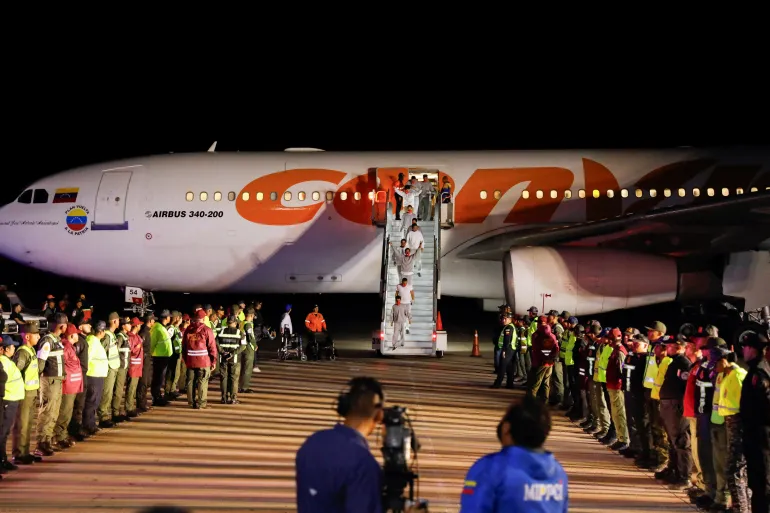The United States has deported 177 Venezuelan migrants from the Guantanamo Bay military base, transferring them to Honduras before Venezuelan authorities flew them to Caracas. This move follows a direct request from the Venezuelan government, with President Nicolas Maduro describing the action as a “rescue” of his countrymen.
According to the US Department of Homeland Security, 126 of the deported individuals had criminal records, including 80 allegedly linked to the Tren de Aragua gang, while 51 had no prior convictions. Upon arrival, Venezuelan Interior Minister Diosdado Cabello personally welcomed the deportees, stating they would undergo health checks before any pending legal proceedings.
This deportation comes amid reports of new migrant transfers to Guantanamo Bay, with flights arriving from Texas and Louisiana. It also follows a lawsuit filed by the American Civil Liberties Union, which alleged that detainees at the base were denied legal representation.
US authorities noted that Venezuela had long resisted accepting deported nationals but changed its stance after high-level negotiations. The recent repatriations, including a separate flight last week carrying 190 Venezuelan deportees, suggest a shift in US-Venezuela relations, despite past tensions over electoral disputes.
Why does this matter?
This deportation highlights evolving diplomatic dynamics between the US and Venezuela while raising concerns about the treatment of migrants at Guantanamo Bay. The case also underscores ongoing legal battles over detainee rights and international deportation policies.

